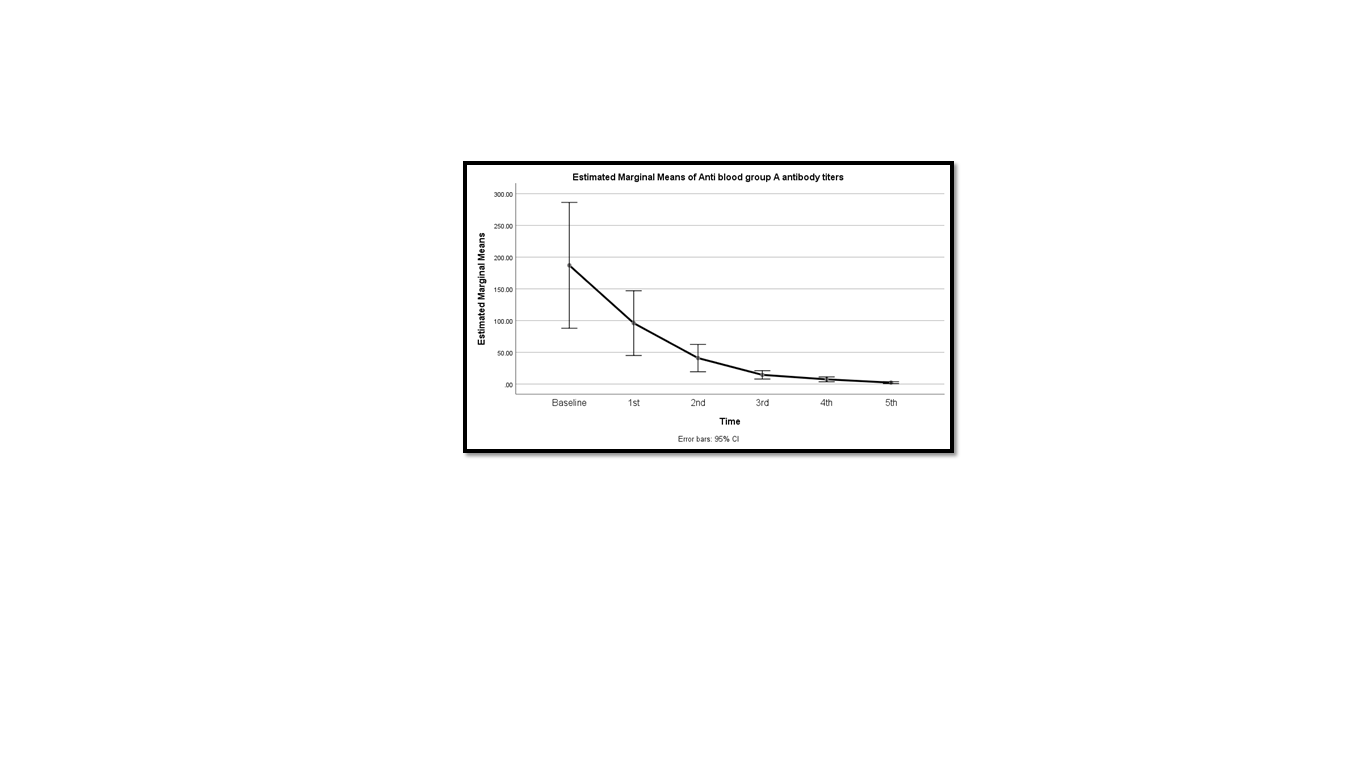Serial plasma exchange is a promising effective method in blood hemagglutinin level reduction
Mohamed Hassan1, Mahmoud Zaki1, Tamer El Said1, Haitham Ezzat1, Mahmoud Al-Semrawy2, Shaimaa Abdelmegied1.
1Internal medicine and nephrology department, faculty of medicine Ain shams university , cairo, Egypt; 2Internal medicine and nephrology department, Mahalla general hospital, Mahalla, Egypt
Introduction: Severe donor shortage in Kidney transplantation stimulates trails of live-related transplants across the ABO antibody barrier. Successful desensitization was achieved by repeated plasmapheresis (PP), splenectomy, donor thrombocyte transfusion, together with intensified immunosuppression. This study estimates the effect of serial sessions of plasma exchange on the blood group's antibody titer.
Method: This is a pilot study that included 25 patients on plasma exchange for different causes with albumin replacement Excluding patients using plasma replacement during sessions, positive direct and indirect antiglobulin test, and AB blood group. Blood group antibody titer was measured by gel card titration method before starting plasma exchange and after each session for five sessions.
Results: This study showed that blood groups (A),(B),(O) was 12,8,5 patients respectively. The Baseline Anti (A) and Anti (B) antibodies titer before plasma exchange were {median (IQR) 128.00 (64-256) and 64 (64-128)} respectively with significant reduction after 5 sessions with {median (IQR) 1 (0-4) and 2 (1-2)} respectively p value<0.001, 0.001 respectively. Anti (A) and Anti (B) antibodies titer reduction percent after 1st session {mean±SD -47.06±12.3% and -50.00%±17.68%} respectively reaching after 5th session {mean±SD -97.9 3±0.99% and -99.04±0.72%} respectively. Anti (A) and Anti (B) antibodies titer were negatively correlated with patient’s age (r -0.793 P <0.001, r-0.731, p 0.005) respectively. Patients with age <50 (N=13) years has higher baseline Anti (A) and Anti (B) antibodies {medain (IQR) 256 (256-512), 128 (128-128)} respectively compared with patients with age >50years (N=12) {medain (IQR) 64(64-64), 64(48-64)} respectively p value 0.002, 0.001 respectively. Also on comparing Patients on immunosuppressive drugs (N= 14) and without immunosuppressive drugs (N=11) there was no significant difference in baseline Anti (B) titer {medain (IQR) 64(64-128) vs 96(64-128)} p value 0.53 while baseline Anti (A) titer was significantly higher in patients without immunosuppressive versus patients with immunosuppressive drugs {median (IQR) 256(256-512) vs 64(64-96)} p value 0.01 and the titer after 5th session {median (IQR) 4 (4-4) vs 0.5(0-1)} p-value 0.01.
Conclusion: Serial plasma exchange is an effective method for blood hemagglutinin reduction. Antibody titer was affected by age of patients and immunosuppressive drugs had a significant effect on Anti (A) antibody titer.



right-click to download
